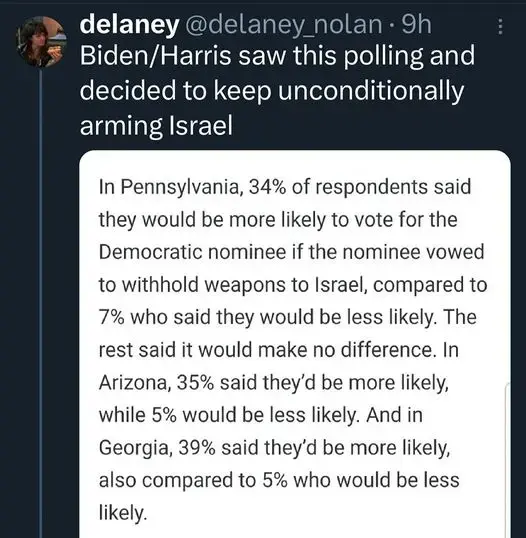

““rare””
you mean common symptom of capitalism :p
alt-text for:
profile picture:
screenshot from the anime “Kill La Kill” showing the face of protagonist (Matoi Ryuko) looking exhausted/sighing; overlayed with a heart filter at the cheeks
profile background:
white circle encasing three diagonally tilted and horizontally stacked arrows. First two arrows are white and pointing down to the left. Thrid arrow is red and pointing up to the right; black background
This is a play on the social democratic “Three Arrows”, since the third arrows stands for anti-communism
🗣️🇩🇪🇷🇺🇬🇧
ur local depressed transfem, mostly here to liquidate years of piled up meme reserves
also on:
Want to help moderate one of the communities listed in my profile? Feel free to reach out!
wiki-user: alsaaas


““rare””
you mean common symptom of capitalism :p


Bunny joined the SRA and local socialist/communist party/org
be more like bunny!


It is semantics, I agree. But tainted semantics and objectively wrong.
You could instead say “communist-led country”, “socialist country”.
The mainstream usage doesn’t understand the nuance you mentioned btw


It’s such a common term of capitalist propaganda…
This is a leftist community just fyi


You can easily look up the answer to your question by yourself: leftist theory, often in the form of books (or even just watching video essays, listening to podcasts etc. etc.)
You can start over here https://www.marxists.org/
One could argue that there are too many different socialist approaches to revolution or rather that it’s not all that easy finding the correct one to your situation


If you had made any honest attempt to look into socialist politics, you’d know that there are a lot of actionable ideas there


deleted by creator


And unironically using it shows every leftist that you have no idea about socialist politics 💀💀


and even if they did get in power, they’d still support NATO and imperialism in general, still support capitalist exploitation, and still would only pay lip service to or fight symptoms of systemic issues instead of ripping the cause that is capitalism out by it’s root


my sibling in Christ, it’s still the same topic of Democrats having done this to themselves by catering more and more to “moderate Republicans” 💀💀
who would have thought that fucking the average working population and literally funding and arming genocide would make you unpopular with reasonable people, while the crazy ones would still vote for the more consequent carrying out of those policies


Almost as if they are doing it on purpose and are just the more culturally liberal of the two Wall Street parties… 🤔🤔


It has always been a distraction. You always have only been able to choose between different representatives of capital
bourgeois “democracy” is just a distraction to legitimise the dictatorship of capital


communist
countries


Well, social imperialism was a real thing. though it’s in no way comparable to the atrocities of capitalist (aka. “normal”) imperialism


Exactly. The system is functioning as intended. Trying to “fix” it or “change it from the inside” is missing the point


Like clockwork, once a post on here has over 50 updoots, the liberals start pouring in lol



https://lemmy.dbzer0.com/post/31001907
EDIT:
[…] The only person you should blame for Harris’s loss is Kamala Harris (and maybe Joe Biden)
(post title)


Liberals don’t rly care about that systemically or rather they only end up paying lip service to those issues instead of wanting to tackle the problems at it’s root (and that is ripping out the system that is capitalism)
You see wild shit on lemmy .world